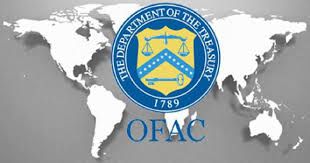AppliChem Pays OFAC $5.5 Million for Cuba Sanctions Violations

OFAC continues to pile up enforcement actions for sanctions violations. In yet another example of a failure of companies to address compliance, to follow up on compliance and to ensure ultimate compliance, AppliChem, a German company agreed to pay $5.5 million for 304 violations of the Cuban Assets Control Regulations during the time period between May 2012 and February 2016. Specifically, AppliChem engaged in 304 prohibited transactions for sale of chemical reagents to customers in Cuba.
On January 1, 2012, Illinois Tool Works, Inc. (ITW), in Glenview, Illinois, acquired AppliChem, a German manufacturer of chemicals and reagents for the pharmaceutical and chemical industries. During the acquisition negotiations, ITW noticed that AppliChem’s website listed certain countries subject to U.S. economic and trade sanctions.
On December 19, 2011, ITW warned AppliChem that it would be required to cease all Cuban business after ITW’s acquisition. After the acquisition closed, an ITW official sent AppliChem’s former owners (who were still working at the merged company) a memo explaining ITW’s guidelines for complying with U.S. sanctions, including the Cuban sanctions.

AppliChem ignored the two separate warnings from ITW and continued to complete and collect on existing orders with Cuban nationals under pre-acquisition contracts.
ITW discovered this continuing sales activity and warned AppliChem’s former owners, yet again, to cease all sales to Cuba. ITW then submitted a voluntary disclosure on January 23, 2013. ITW represented to OFAC that all Cuba transactions were cancelled.
On May 29, 2015, OFAC issued a warning letter to ITW concerning the post-acquisition Cuba transactions.
On January 27, 2016, ITW’s ethics helpline received an anonymous report that AppliChem continued to conduct sales to Cuba through a third-party in Berlin, Germany. ITW launched an internal investigation which confirmed that AppliChem’s former owners continued its Cuba business. Specifically, ITW learned that AppliChem implemented what it called “Caribbean Procedures” (a code referring to Cuba) to ensure that no documents were prepared or retained relating to its continuing Cuba business.
AppliChem engaged an external logistics company and independent consultant to prepare shipping documents and declarations. In fact, AppliChem conducted training sessions for AppliChem staff to further the illegal scheme and ensure that it was hidden from ITW. At AppliChem, the illegal procedures were known and an “open secret” at AppliChem.
Prior to the helpline report, AppliChem employees reported the continuing misconduct to the General Manager of ITW’s relevant division. The General Manager sought assurances from the intermediary company that a pending shipment would not be diverted to Cuba, but did not initiate a fuller internal investigation at that time.

ITW earned over 2.8 million euros (approximately $3.4 million) through these illegal transactions.
According to OFAC, the enforcement action underscores the importance of: (i) implementing risk-based controls, such as regular audits to ensure subsidiaries are complying with their obligations under OFAC’s sanctions regulations; (ii) performing follow-up due diligence on acquisitions of foreign persons known to engage in historical transactions with sanctioned persons and jurisdictions; and (iii) appropriately responding to derogatory information regarding the sanctions compliance efforts of foreign persons subject to the jurisdiction of the United States.















